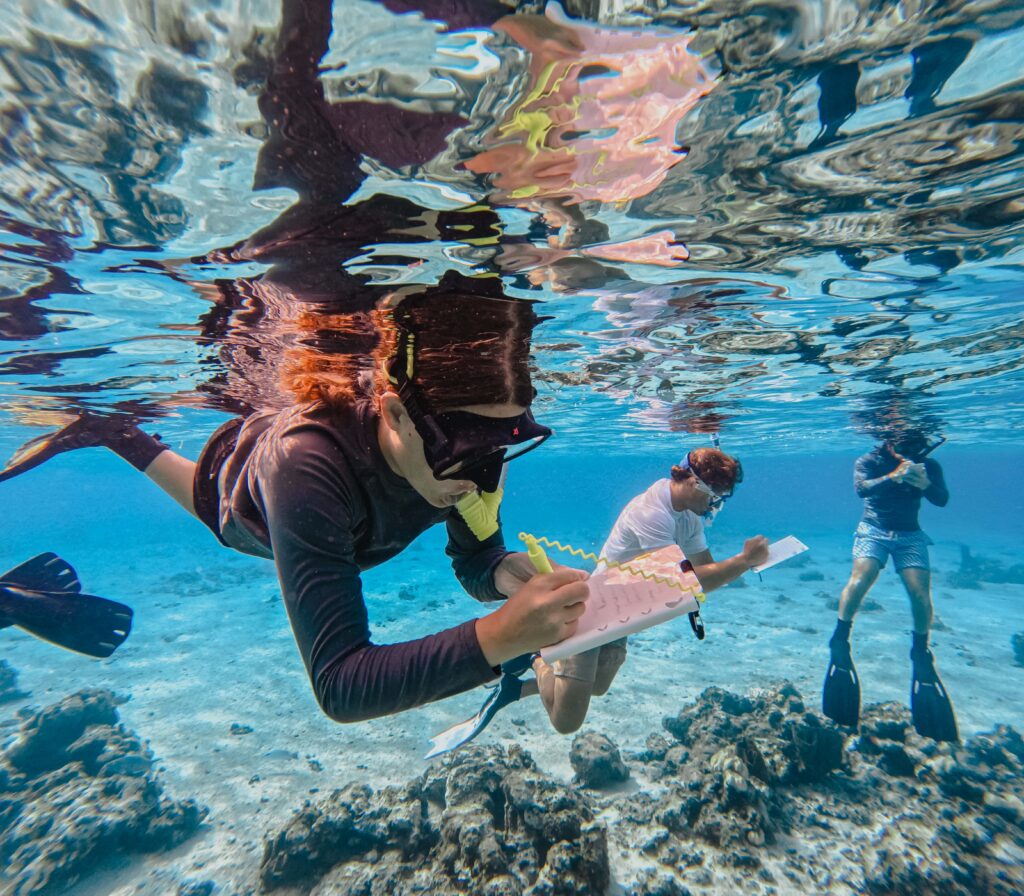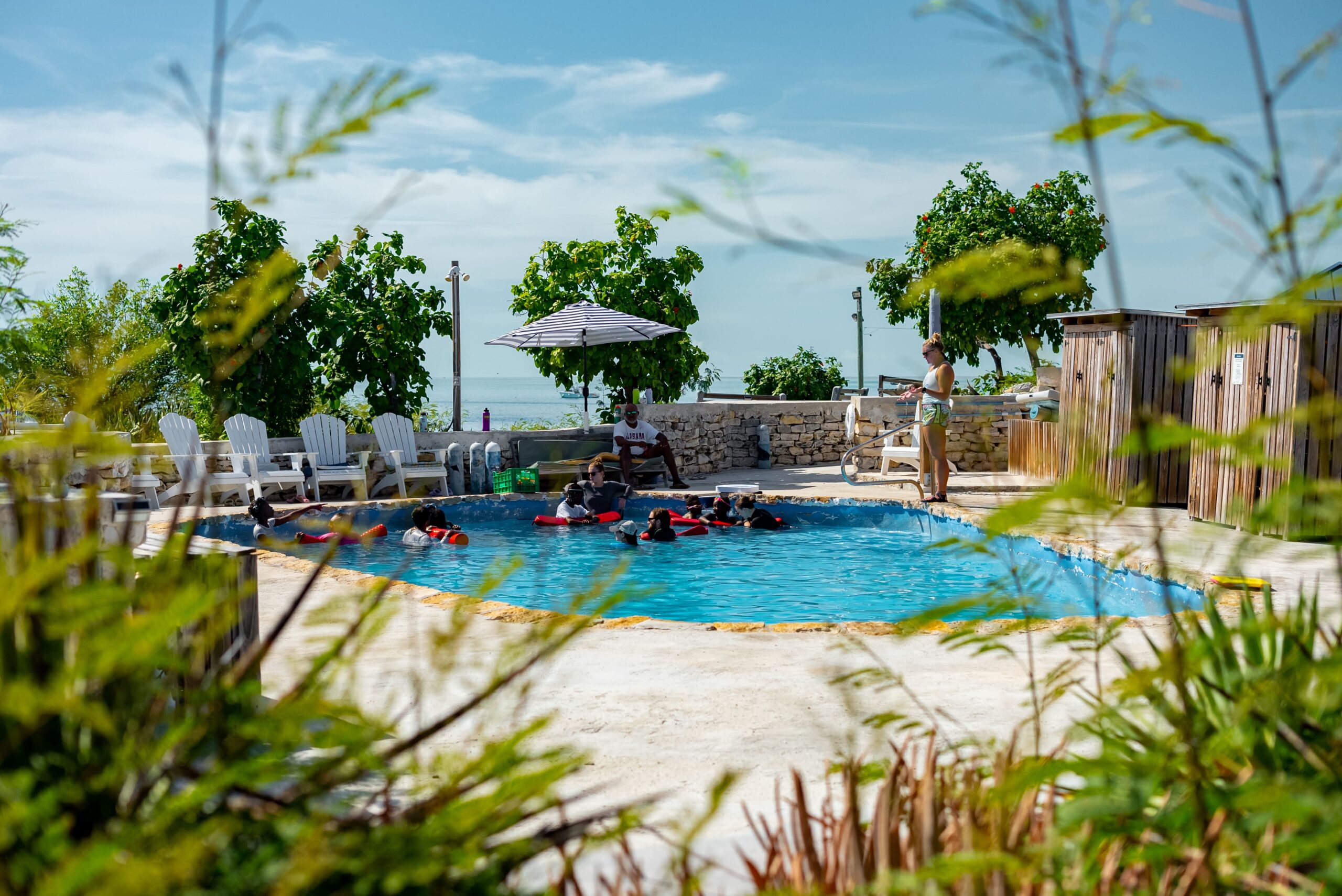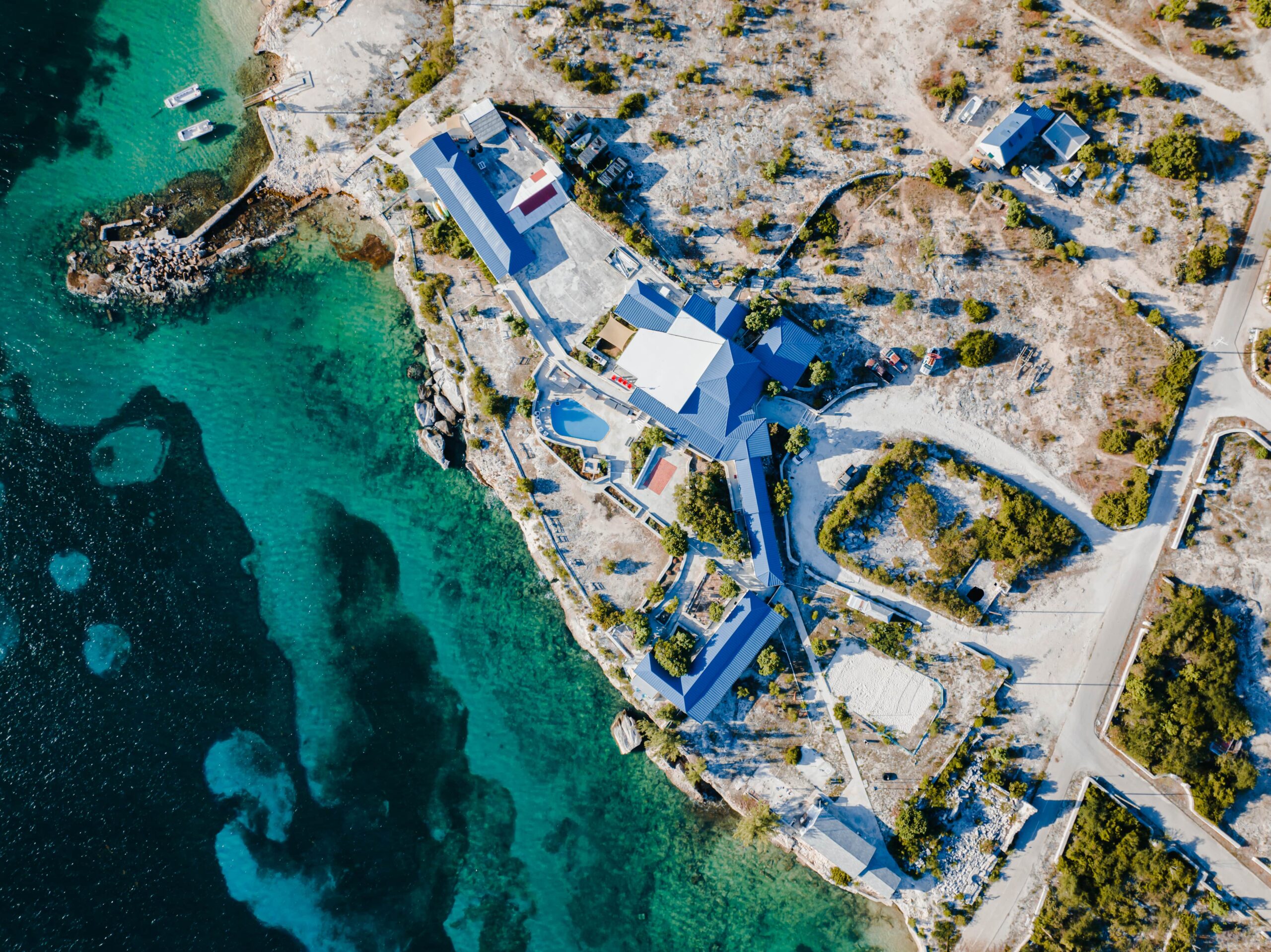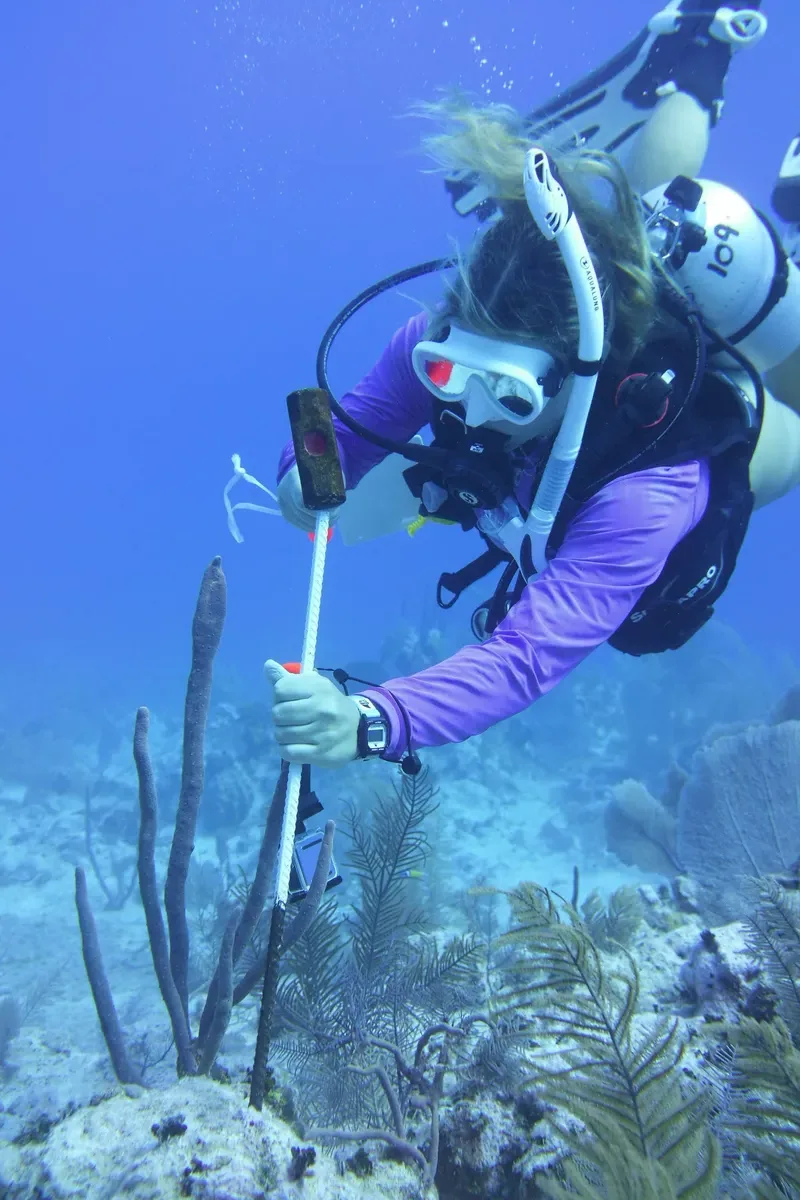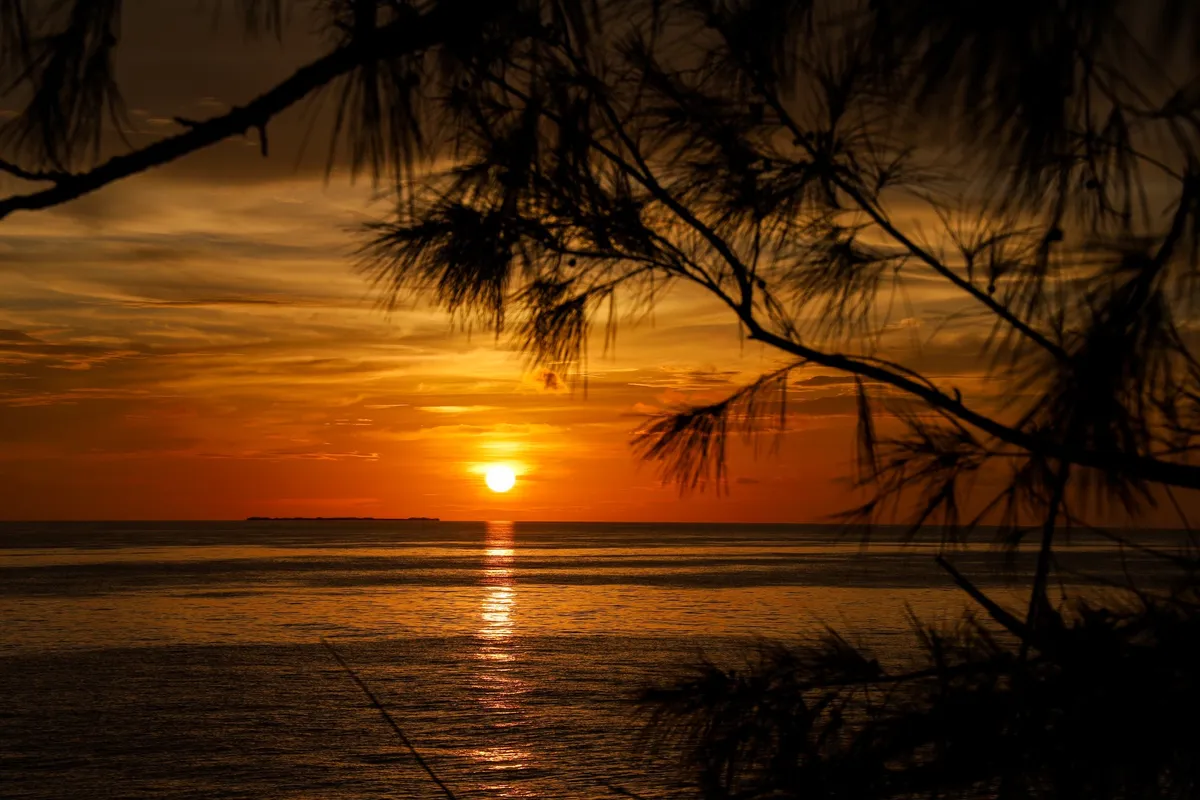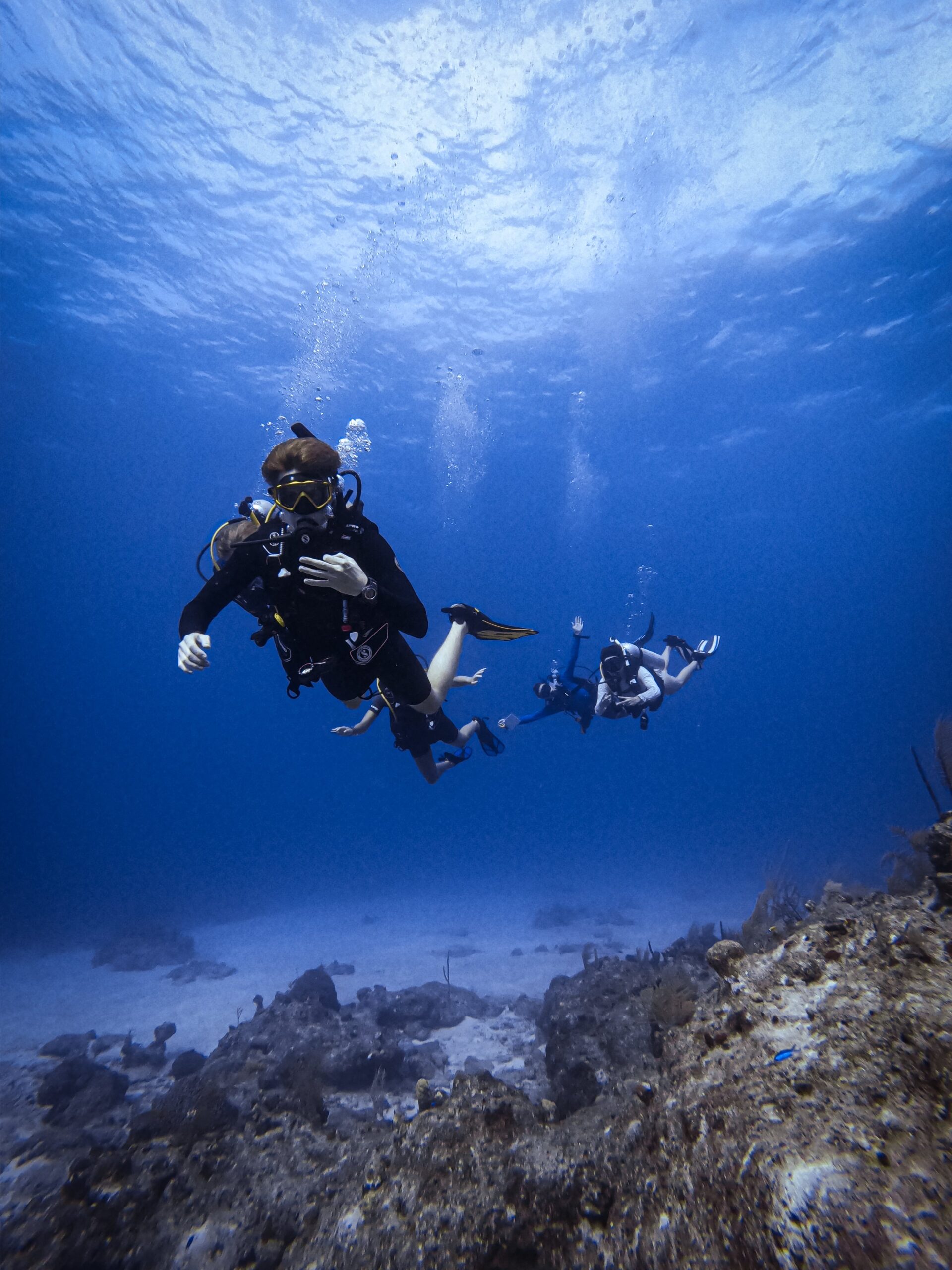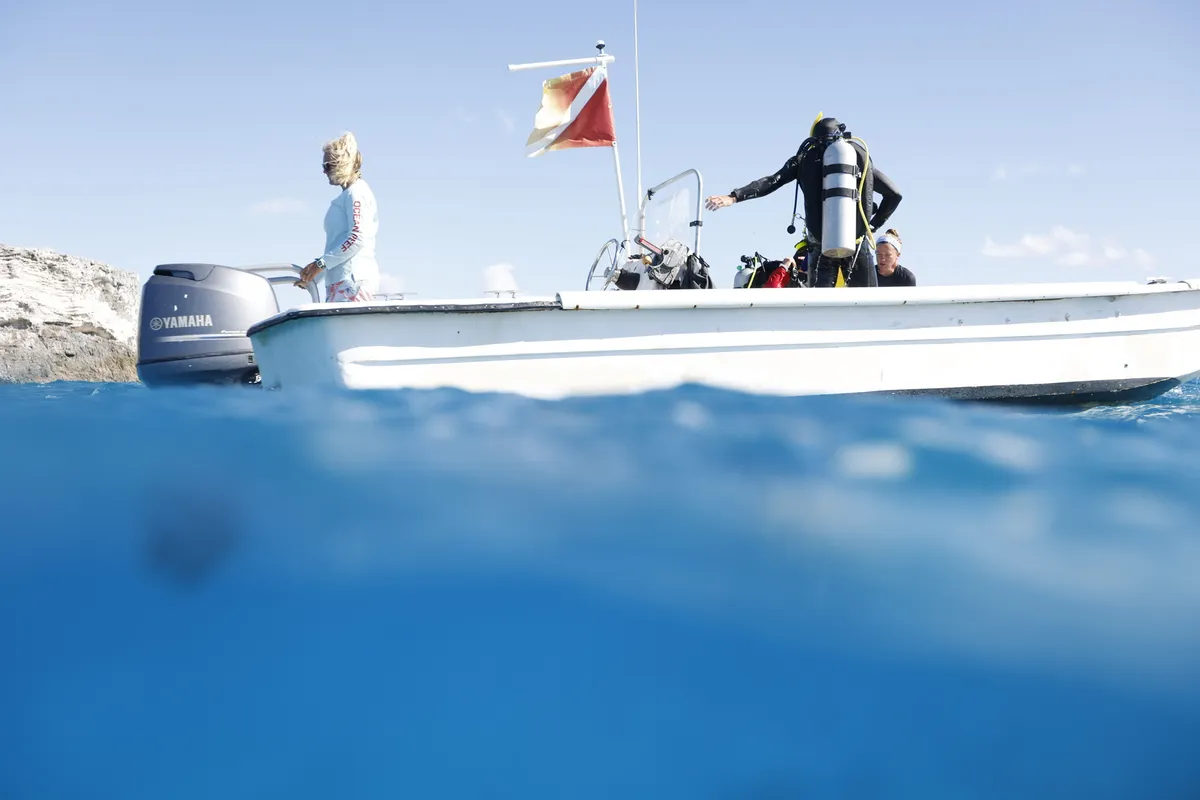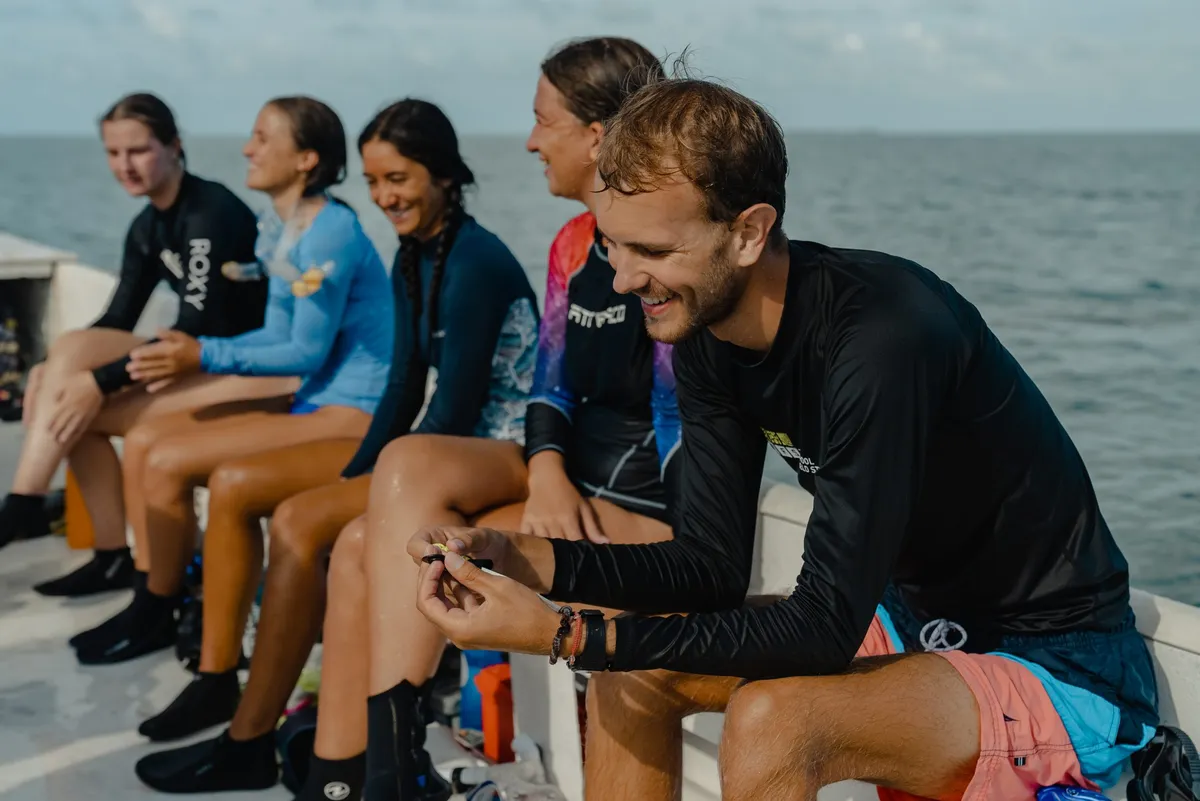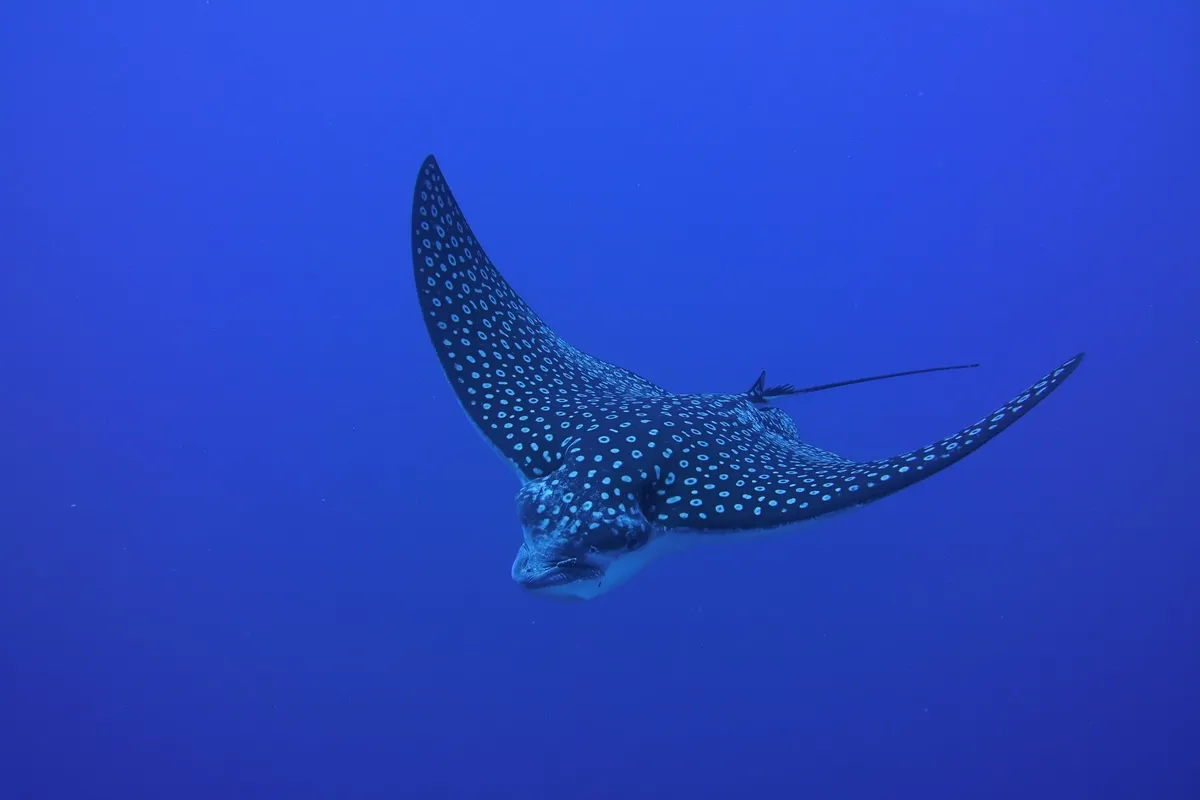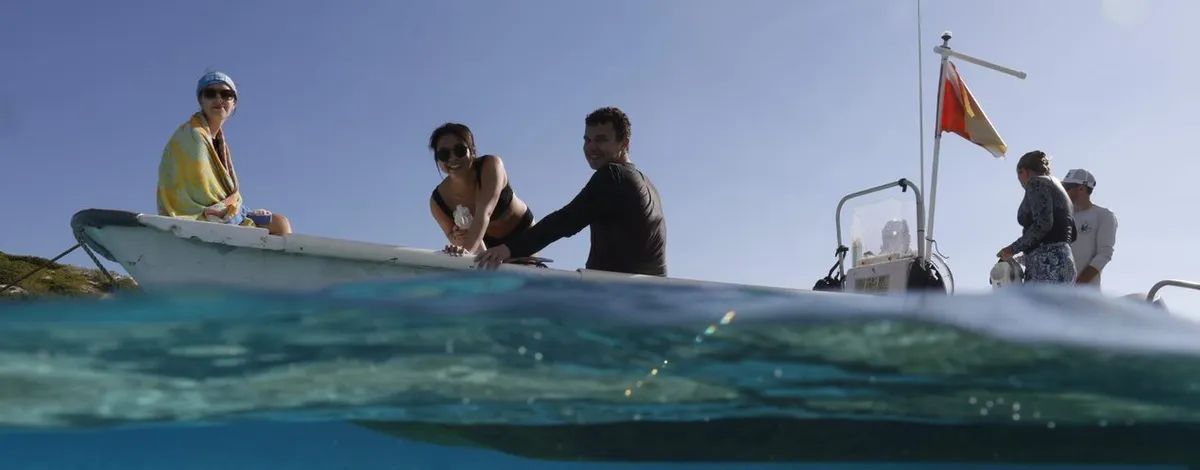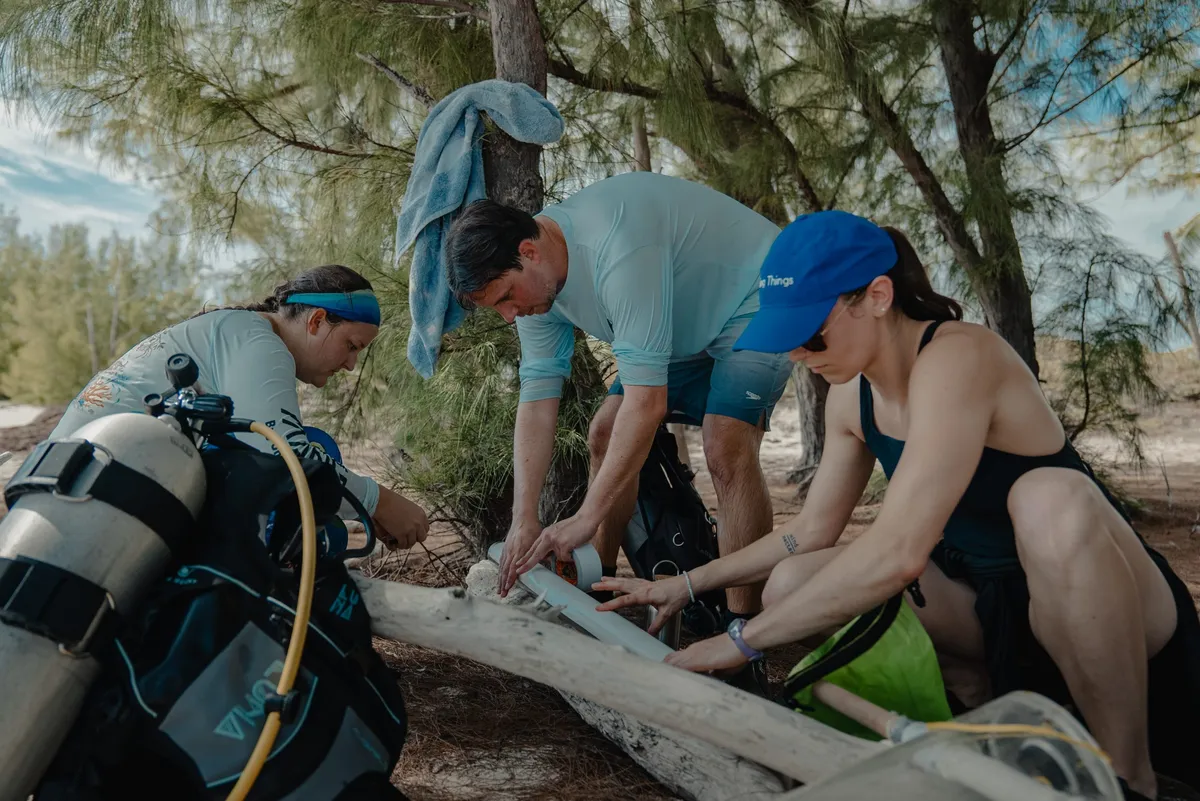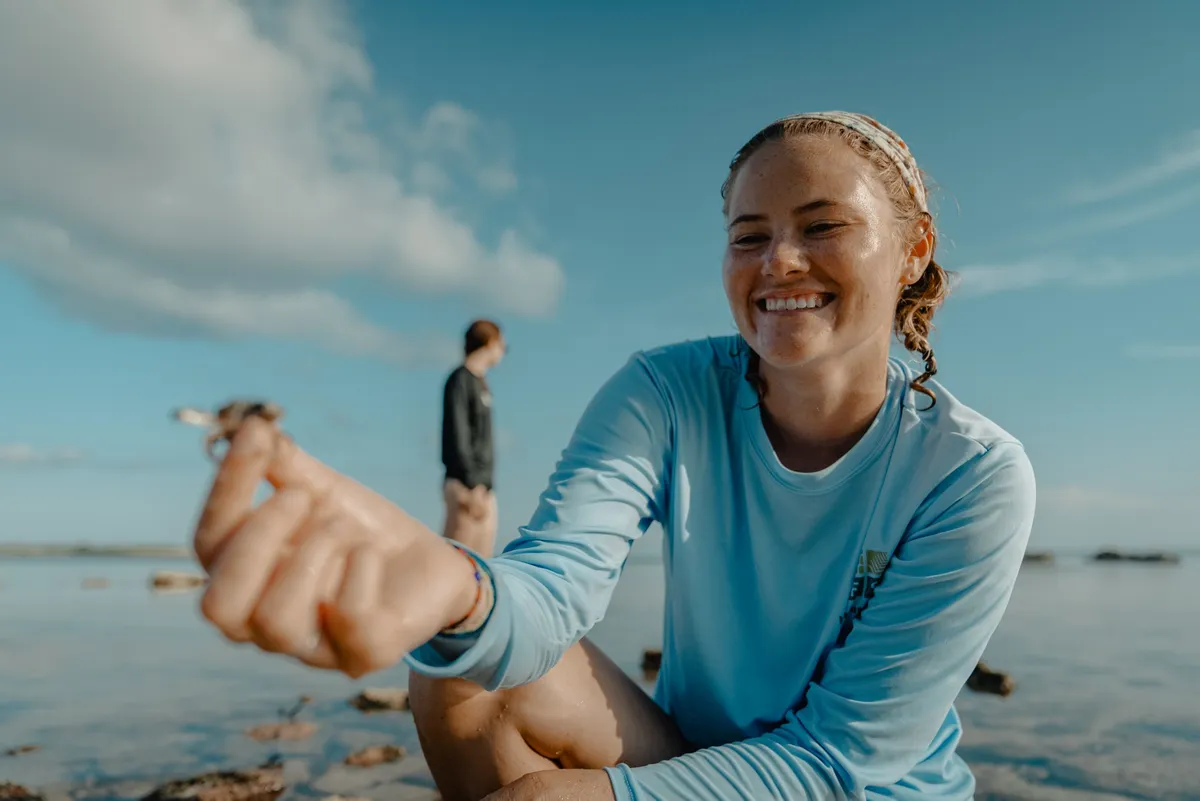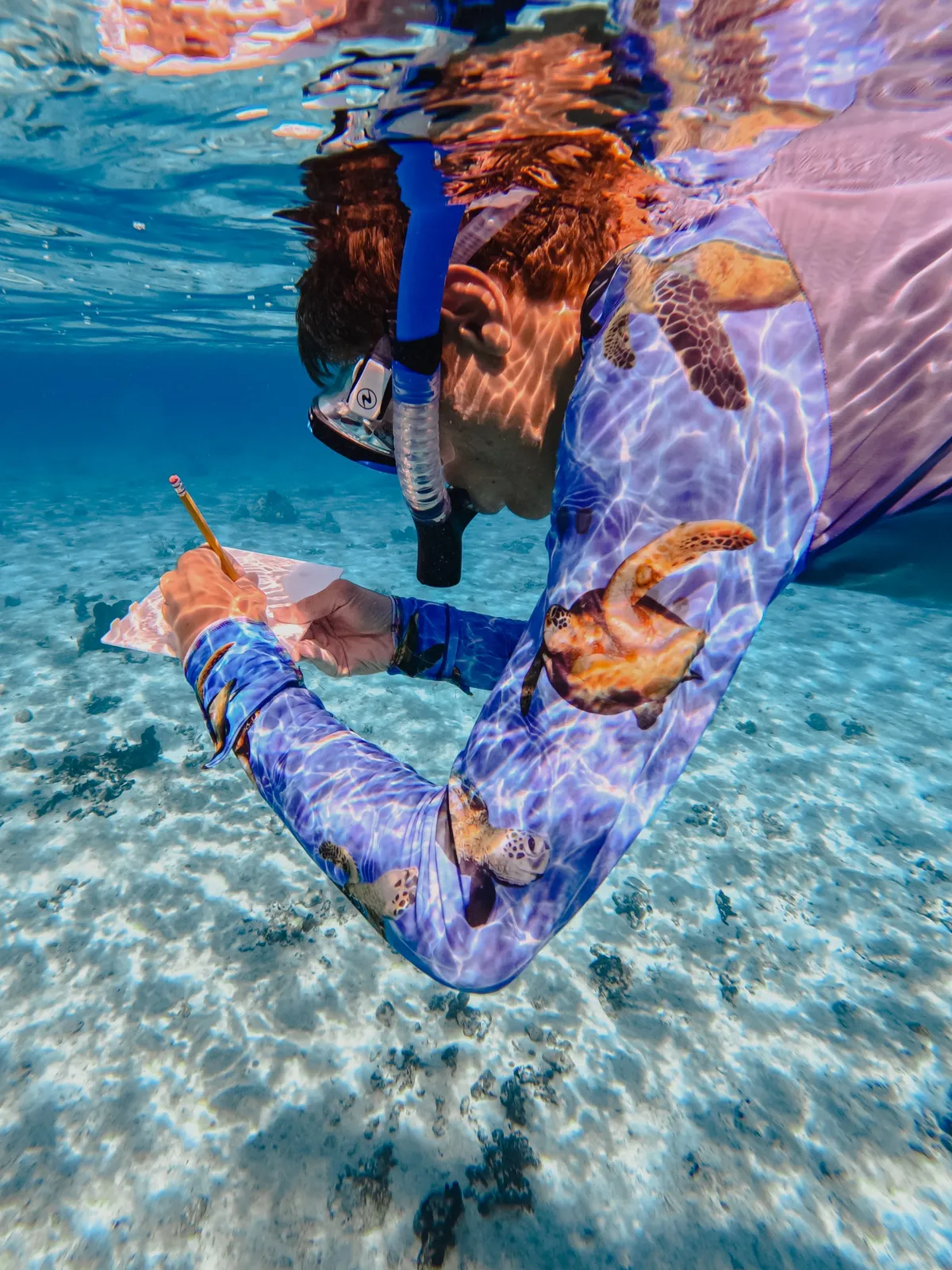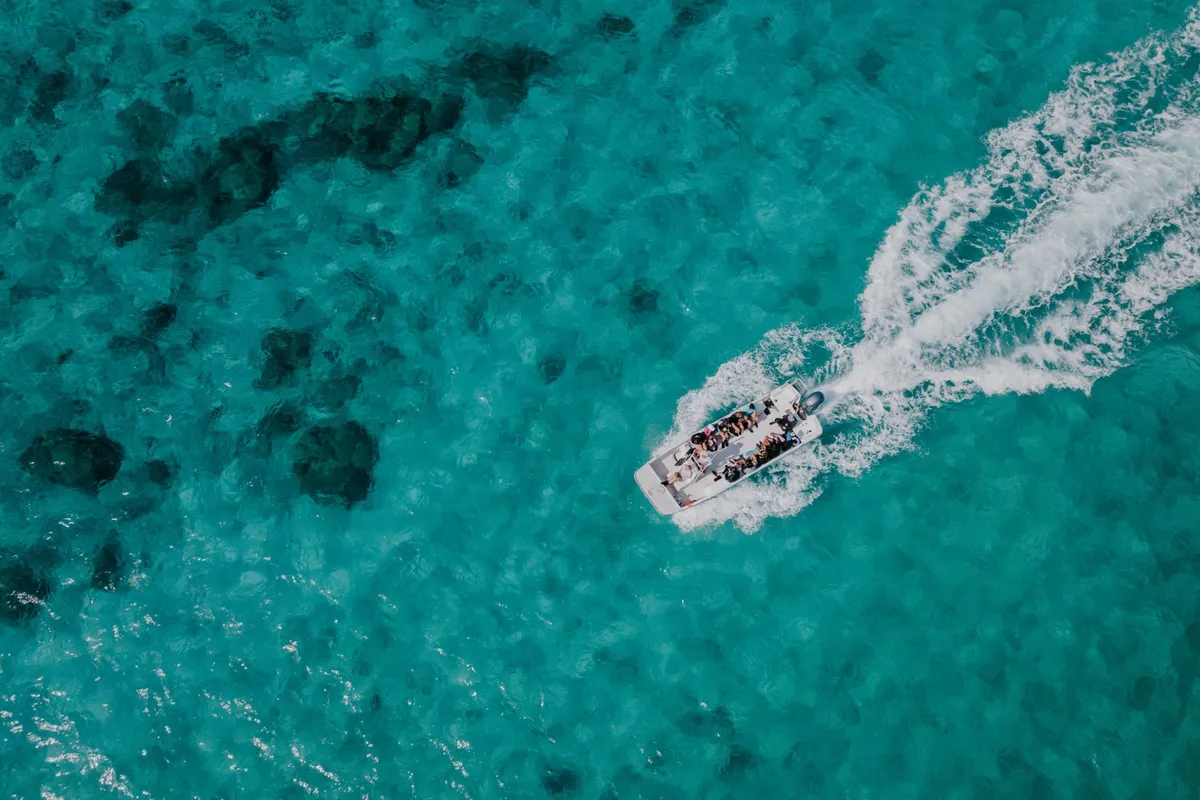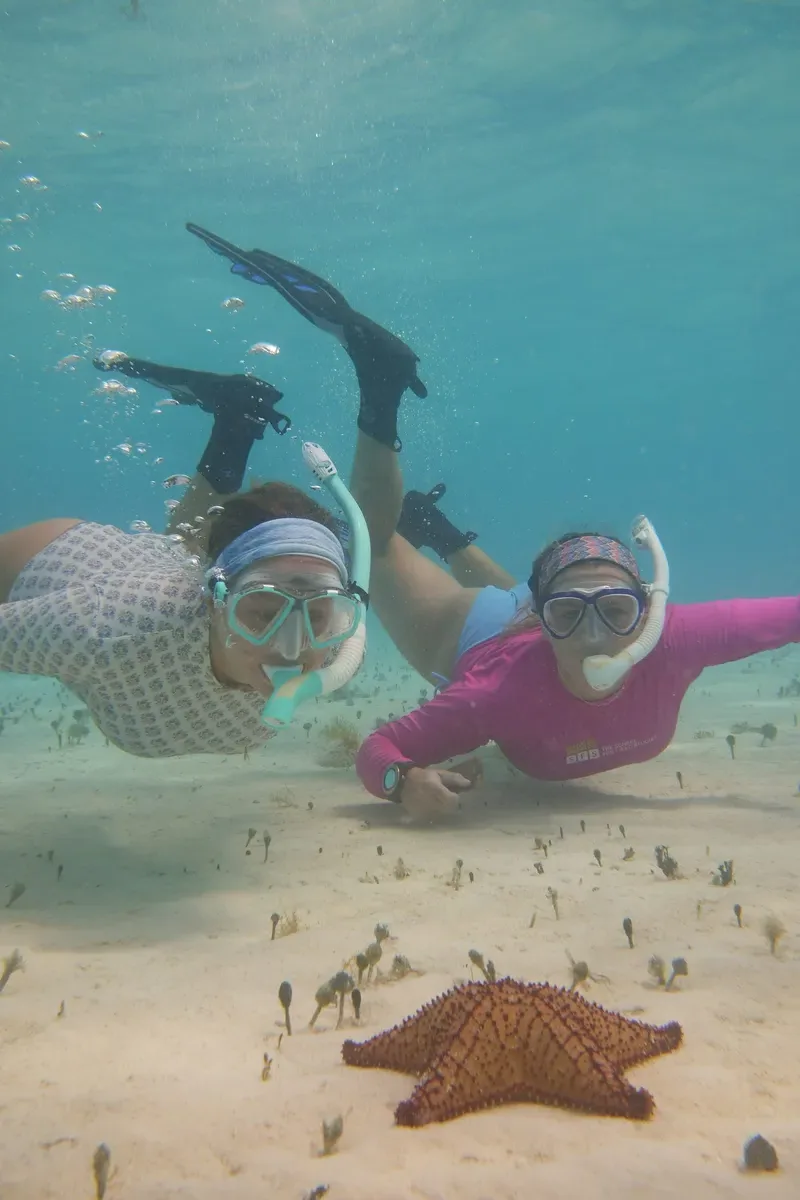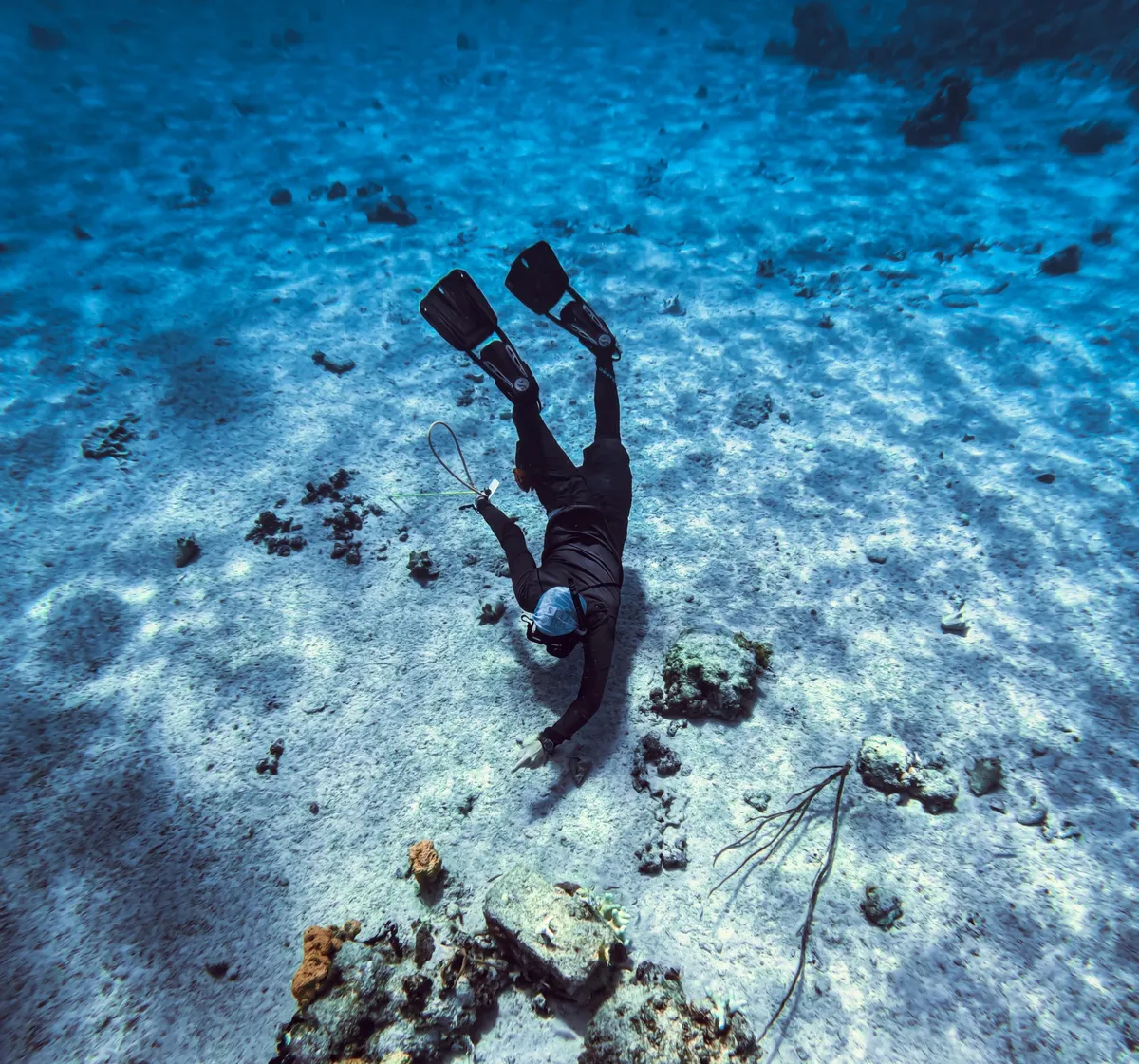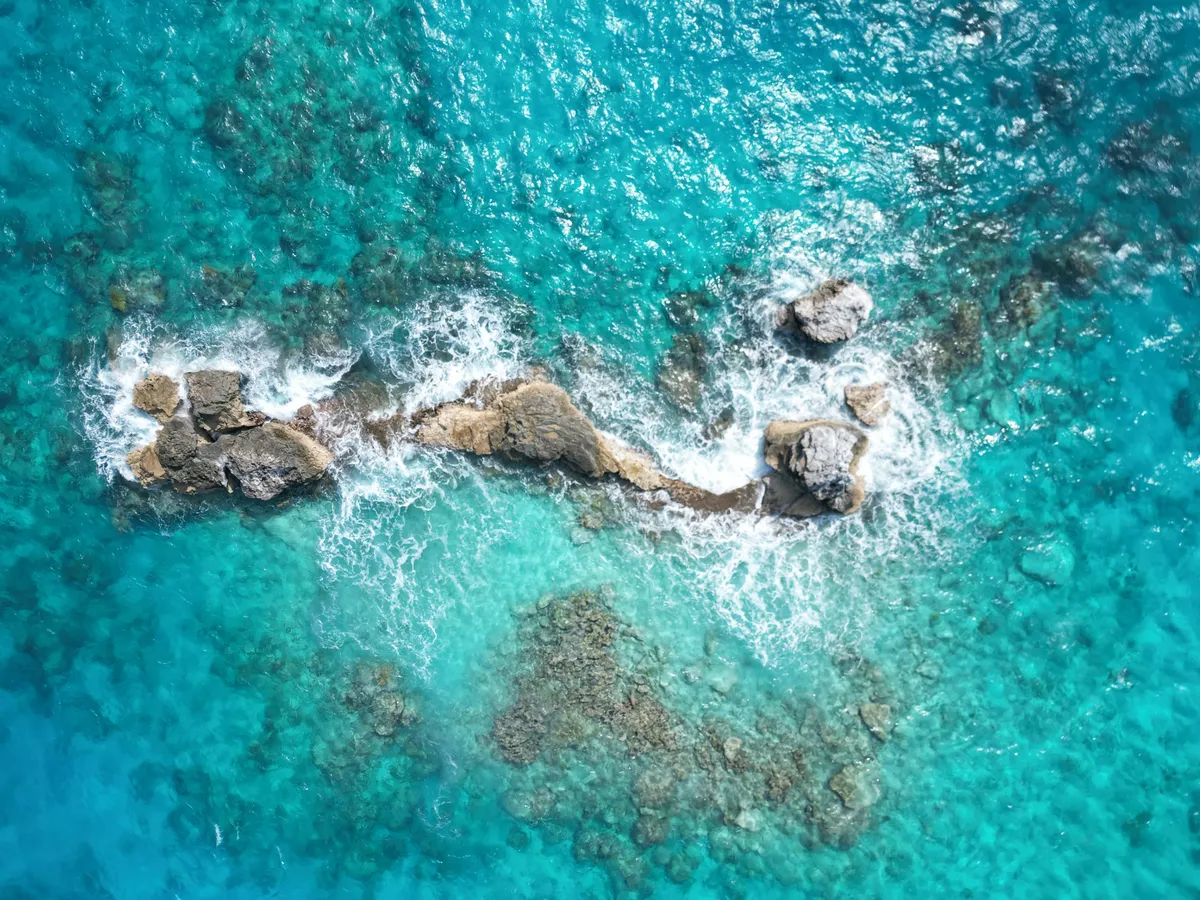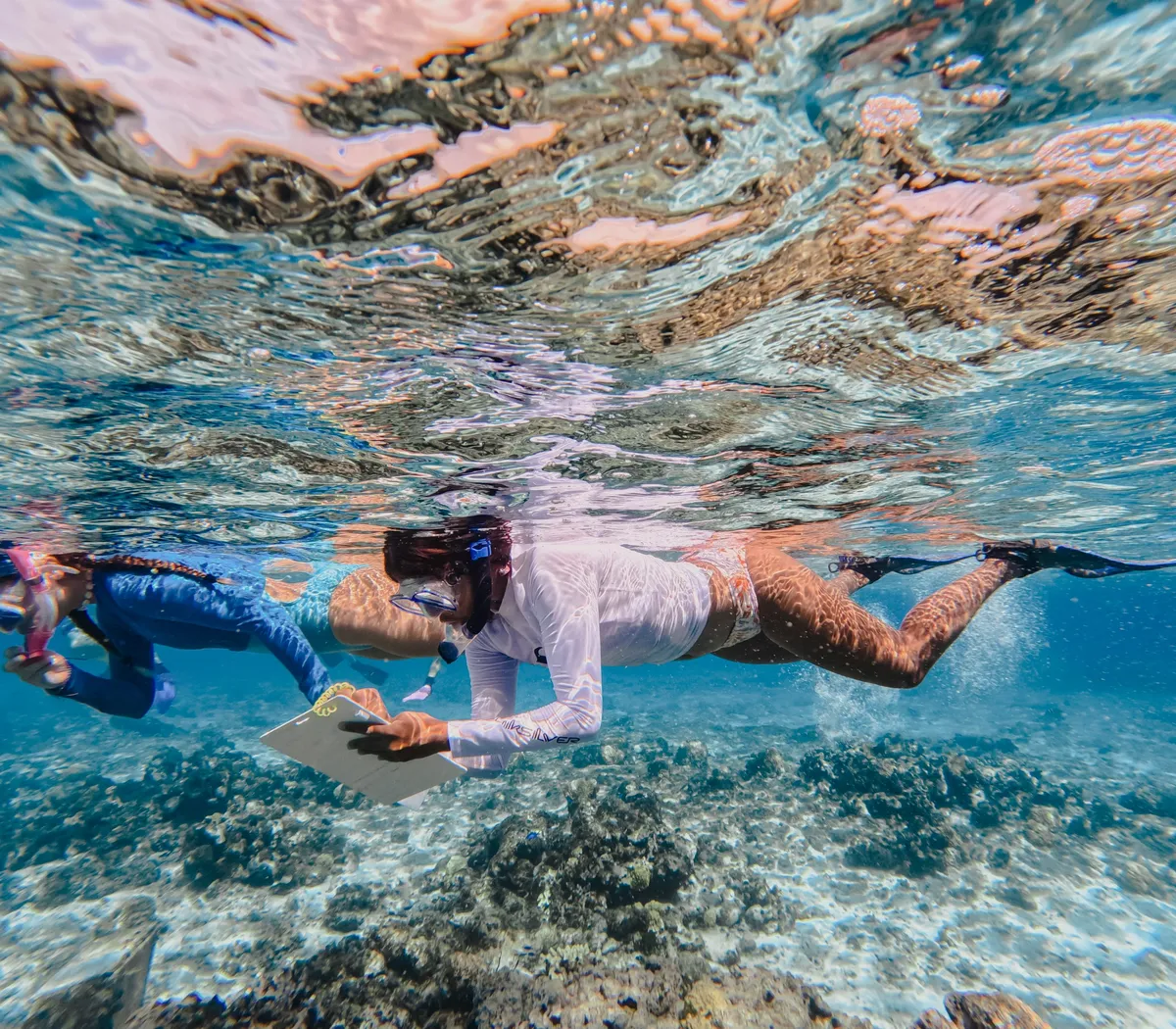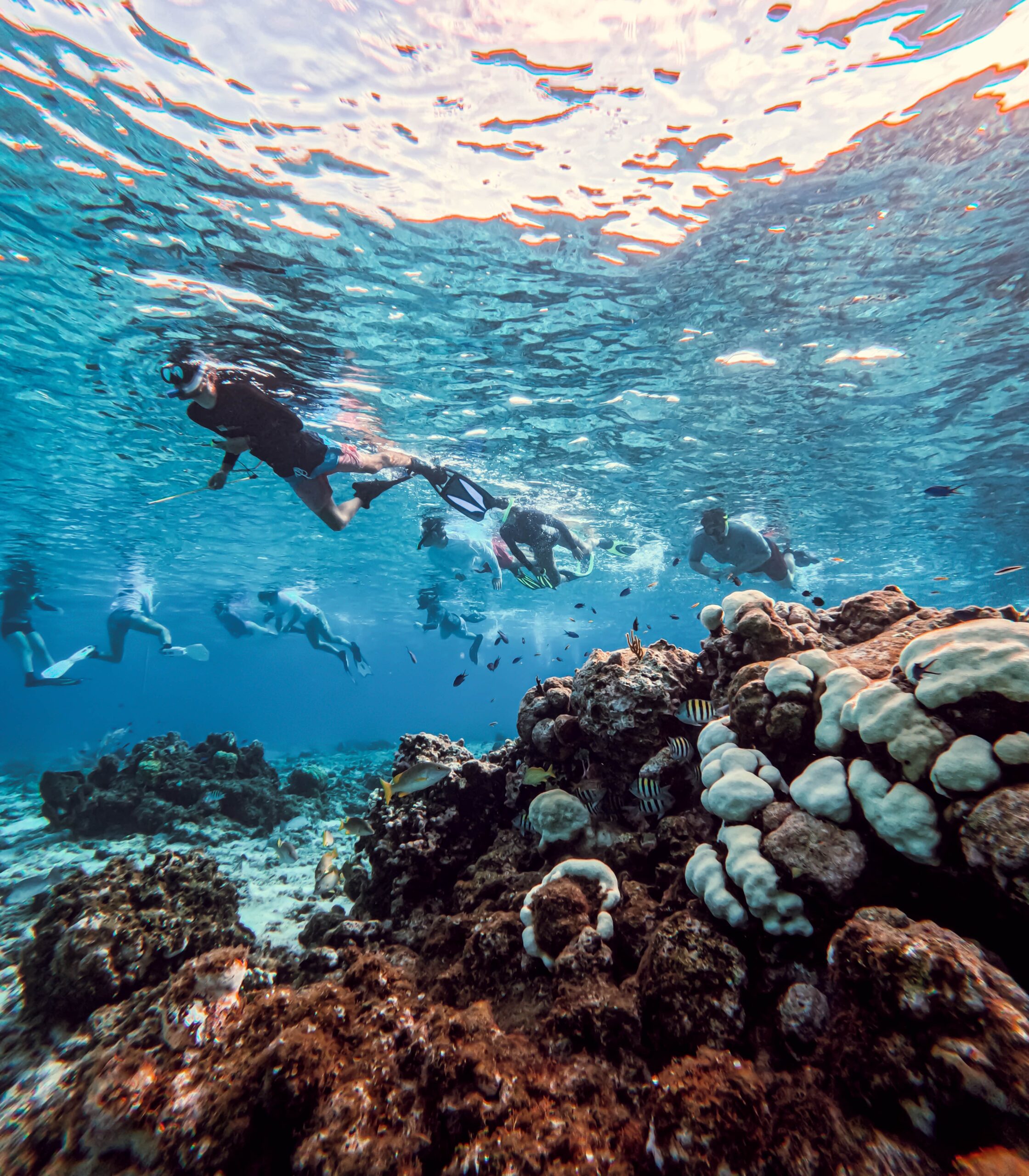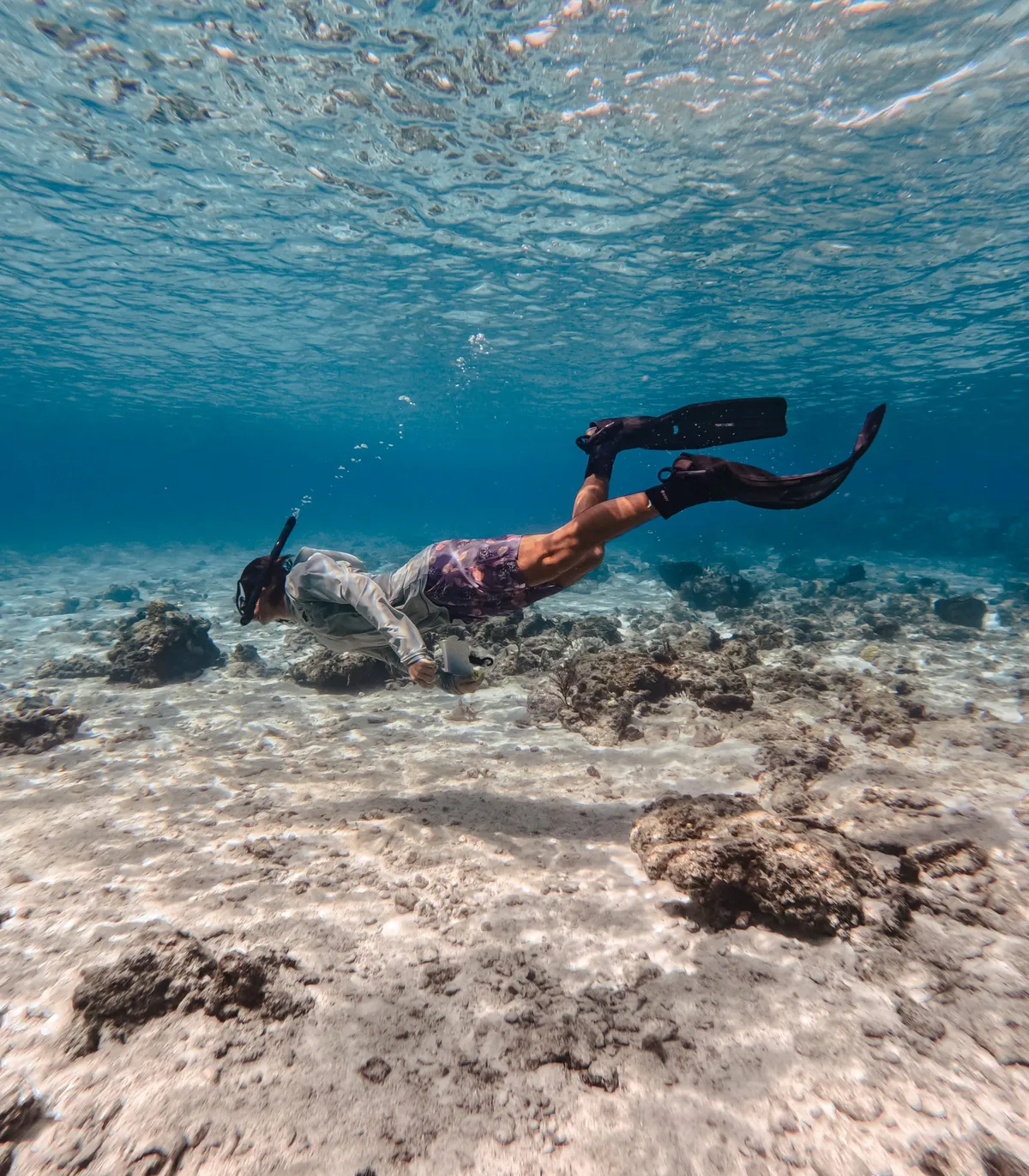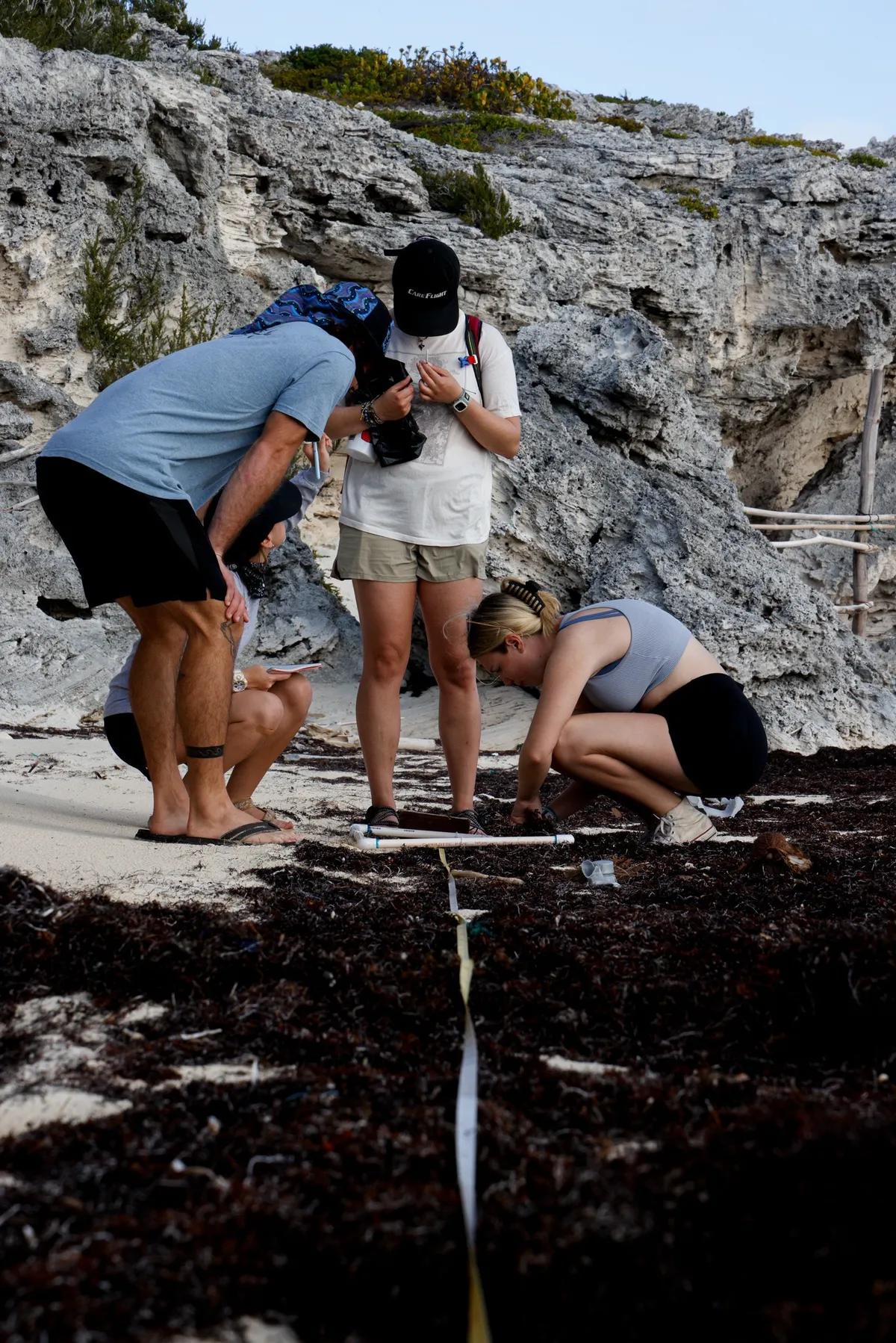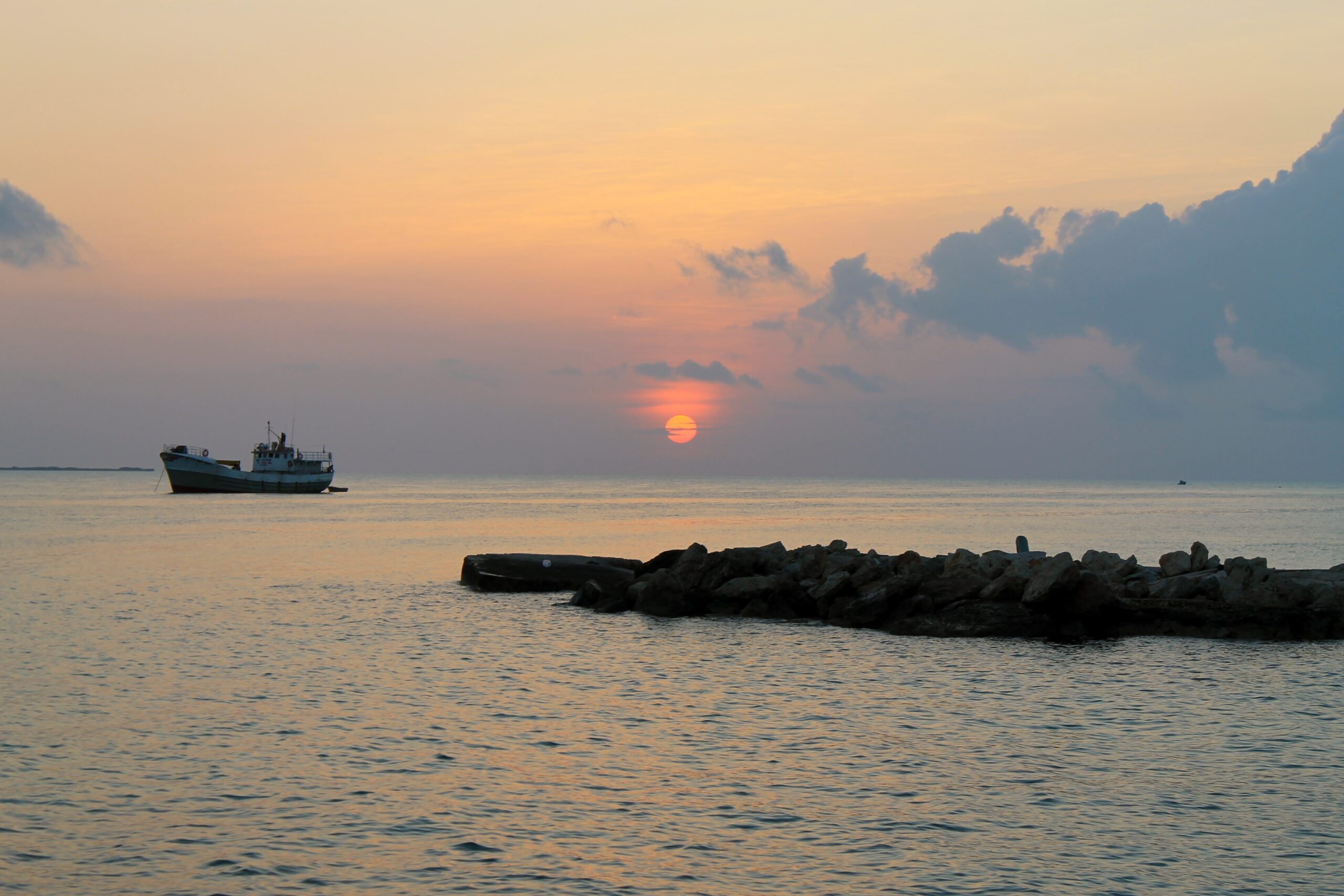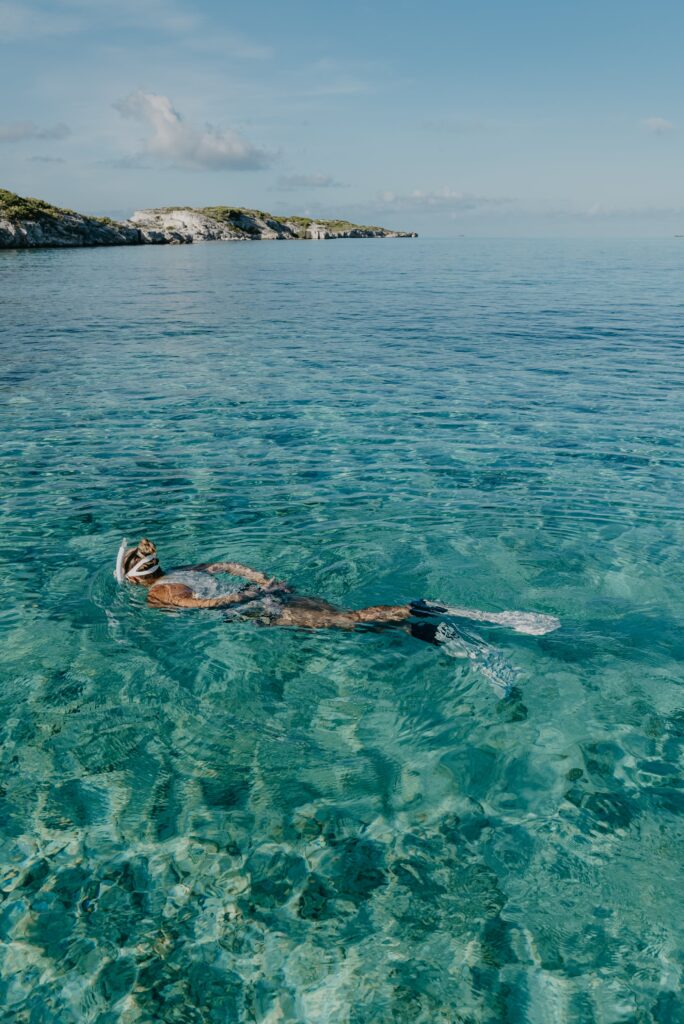
Program Costs
- Tuition
- Room & Board
- Total
Application Deadlines
Marine Resource Studies
Students float above coral reefs that rise like polychromatic mountain ranges, identifying rays gliding through channels and reef sharks weaving the currents. Beyond the reef, mangroves and seagrass meadows stretch outward, anchoring a marine system that sustains both biodiversity and livelihoods. Students enter this living classroom, fins slicing through warm currents as they log fish counts, measure coral bleaching, or survey conch and lobster. Evenings bring the rhythm of science and community: dive gear drying beside data sheets, spirited debates with faculty, and the sound of the ocean carrying through the salt air.
- Conduct coral and fish biodiversity transects on surrounding reefs, recording species counts, sizes, and habitat complexity while noting signs of bleaching or storm damage.
- Quantify seagrass bed density and associated invertebrate abundance using standardized belt transects, then analyze spatial variation with statistical software.
- Survey mangrove forest structure and mobile fauna diversity in tidal creeks, linking species presence to nursery habitat quality.
- Observe octopus behavior and ecology, recording camouflage, hunting strategies, and habitat use within reef systems.
- Conduct Directed Research: frame a stakeholder-driven question, collect and analyze field data with faculty guidance, and present actionable findings to local partners.
Academics
This academically rigorous program follows a six-day/week schedule. Each program combines theory learned during classroom sessions with field-based applications. The interdisciplinary curriculum is designed to help students actively discover and understand the complexities of environmental, social, and economic issues in the Turks & Caicos Islands.
Major academic themes include:
- Marine ecology and conservation
- Climate change and ocean acidification
- Approaches to sustainable tourism and fisheries
- Marine resource management
- Traditional island livelihoods
- Coral health and resilience
- Marine protected areas
- Coastal management
Courses
On the Marine Resource Studies program, you will take three 4-credit disciplinary courses and a 4-credit capstone Directed Research course. Courses are participatory in nature and are designed to foster inquiry and active learning. Each course combines lectures, field exercises, assignments, tests, and research. All courses are taught in English.
Marine Conservation Governance
Studying the use and conservation of marine and coastal natural resources requires scrutiny from many different natural science and social science perspectives. This course focuses on human interactions with local natural systems, and vice versa. Understanding the roles that nature-society interactions such as resource extraction, fishing, tourism, and associated development play in the protection of natural areas from human disturbance is crucial to the present and the future of the Turks and Caicos Islands (TCI). Our primary goal is to discover how we may encourage sustainable human-environment relationships. With a hands-on, teamwork focus on conservation and sustainable development, this course will help you comprehend the connections between theory and practice. It will also provide you with the on-the-ground practical skills and tools necessary to critically analyze management of the human-environment nexus. Because tourism, development, fishing, and conservation are simultaneously social, cultural, economic, and ecological phenomena, holistic critical thinking can help to create more sustainable programs that will benefit natural and social worlds.
Tropical Marine Ecology
Marine ecology is the study of how marine organisms interact with their biotic and abiotic environments. In this course we will focus on the biological processes and trophic webs that exist in the ecosystems that dominate the shallow coastal areas of the tropical western Atlantic, i.e. mangrove forests, seagrass meadows and coral reefs, as well as the behavior and biology of the organisms that inhabit them. Furthermore, we will explore the ways in which Marine Protected Areas, climate change and hurricanes can affect ecological processes, and we will learn some of the practical field data collection techniques that can be employed to assess marine communities.
Principles of Marine Resource Management
This course is intended to introduce the disciplines and tools required to understand and manage marine resources. This component of the academic program at the Center for Marine Resources Studies (CMRS) makes the link between Marine Ecology and Marine Conservation Governance. Topical areas include fisheries management, marine conservation, ocean pollution management, marine protected areas, coastal zone management, and strategies for sustainable development.
Directed Research Turks and Caicos
This course prepares students to distinguish hidden assumptions in scientific approaches and separate fact from interpretation, cause from correlation, and advocacy from objectivity. Students learn specific tools including: experimental design; field techniques; basic descriptive statistics; and parametric and non-parametric quantitative analysis. Emphasis is placed on succinct scientific writing, graphic and tabular presentation of results, and effective delivery of oral presentations.
Core Skills
You will gain practical skills in the field such as: coral health assessment, marine species identification, underwater transects and quadrats, video and photo tracking, marine survey techniques, habitat and biodiversity assessment, ecosystem services valuation, research design and implementation, quantitative and qualitative data collection and analysis, research presentation, and PADI Open Water Diver certification (offered at an additional cost, upon request).
Field Sites
You will visit different ecosystems and communities which may include coral reefs, mangrove islands, seagrass beds, fishing communities, carbonate platform flats, beaches, marine protected areas, numerous shallow-water snorkeling sites, protected wetlands, caves on Middle Caicos Island, a historical plantation on North, and the tourist hub of Providenciales.
Other Turks and Caicos Islands Programs
Marine Resource Studies
More Information
Program Costs
- Tuition
- Room & Board
- Total
Fundamentals of Marine Conservation
More Information
Program Costs
- Tuition
- Room & Board
- Total
Marine Fauna
More Information
Program Costs
- Tuition
- Room & Board
- Total

